Collagen supplements can be a great way to consistently get collagen into your diet. Hydrolyzed collagen powder is also easily absorbed, so your body can reap more of the benefits. But maybe you are looking to get more collagen from the foods you eat. There are also plenty of foods that do not contain collagen but have vitamins and minerals that are needed for collagen production. These 19 collagen-boosting foods can be included in your diet to promote healthy skin, joints, bones, and muscles. Many are rich in protein, vitamin C, and minerals like zinc and copper.
1 Bone broth
Bone broth is definitely the most widely-recognized source of collagen. It has been used for decades to promote healthy skin, bones, and muscles. Though some studies question its reliability, it remains the most popular collagen food.
2 Meat
Protein in meat has essential amino acids. Some of these amino acids are needed to make collagen.
3 Gelatin
Like bone broth, gelatin is a by-product of animals that is full of collagen. It can be purchased as a powder and put in smoothies or added to food.
4 Fish and Shellfish
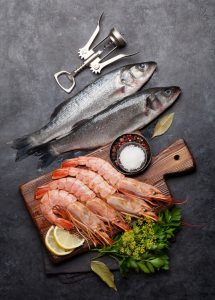
Fish and shellfish contain proteins and minerals your body needs to produce collagen, though researchers note we sometimes don’t eat the parts of fish that contain the most collagen. Oysters are rich in zinc and copper, which are required for collagen synthesis. (They are also a sustainable seafood source!)
5 Eggs
Eggs whites contain glycine and proline, amino acids needed for collagen production. The yolks are also filled with vitamin D and healthy fats. These help your skin, bones, and muscles.
6 Leafy Greens
Leafy greens are great to eat to boost your collagen levels. Greens like kale, spinach, and Swiss chard contain chlorophyll, which increases the precursor to collagen in the skin. They are also rich in antioxidants!
7 Citrus Fruits
Citrus fruits are a great source of Vitamin C, which is very important in collagen production.
8 Berries
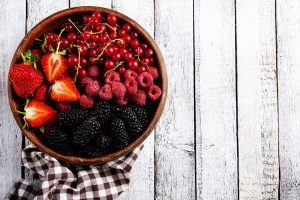
Also a great source of Vitamin C, berries like blueberries, raspberries and blackberries also contain helpful antioxidants. These help protect the skin from damage.
9 Tropical Fruits
Fruits like mango, kiwi, pineapple, and guava contain—you guessed it—vitamin C. Guava is also a good source of zinc, a co-factor in collagen production.
10 Garlic
Garlic is rich in sulfur, a trace mineral that helps synthesize collagen and also prevents collagen breakdown. A person would have to consume a lot of garlic to see these benefits, but doing so can be worth it. Or, you can take it as a supplement.
11 Nuts
Nuts are more than a good source of protein. Nuts can be a good source of zinc and copper, which are needed for collagen synthesis. Cashews are a particularly good snack.
12 Beans
Like nuts, beans contain amino acids and copper used in collagen synthesis. And they are a great source of protein.
13 Tomatoes
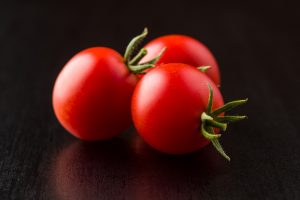
Along with vitamin C, tomatoes also contain lycopene—an antioxidant that supports skin health. Include tomatoes with your collagen-rich diet to ensure glowing skin.
14 Broccoli
Yet another vitamin C source, it is also rich in other helpful nutrients. These include vitamin K, folate, and antioxidants.
15 Bell peppers
Bell peppers contain vitamin c as well as a compound called capsaicin. Capsaicin is an anti-inflammatory and may smooth signs of aging. Like tomatoes, red peppers also contain lycopene.
16 Mushrooms
Mushrooms are another source of zinc, which is needed in collagen synthesis.
17 Orange Vegetables
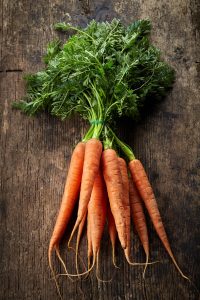
Foods like carrots and sweet potatoes contain vitamin A, which works to restore damaged collagen.
18 Soy
Soy contains a plant hormone called genistein. It is an antioxidant that promotes collagen production and blocks enzymes like MMPs that age the skin
19 White Tea
White team may protect structural proteins of skin, including collagen. It is also thought to prevent enzyme activity that breaks down collagen.
Foods to Avoid
Just as there are foods that are helpful in collagen production, there are also foods that are harmful. These are mainly sugar and refined carbohydrates.
The Bottom Line
There are many foods you can eat to boost your collagen production besides bone broth. With such a wide variety, there is so much you can do to help your body. These will benefit your skin, nails, joints, muscles, and bones.

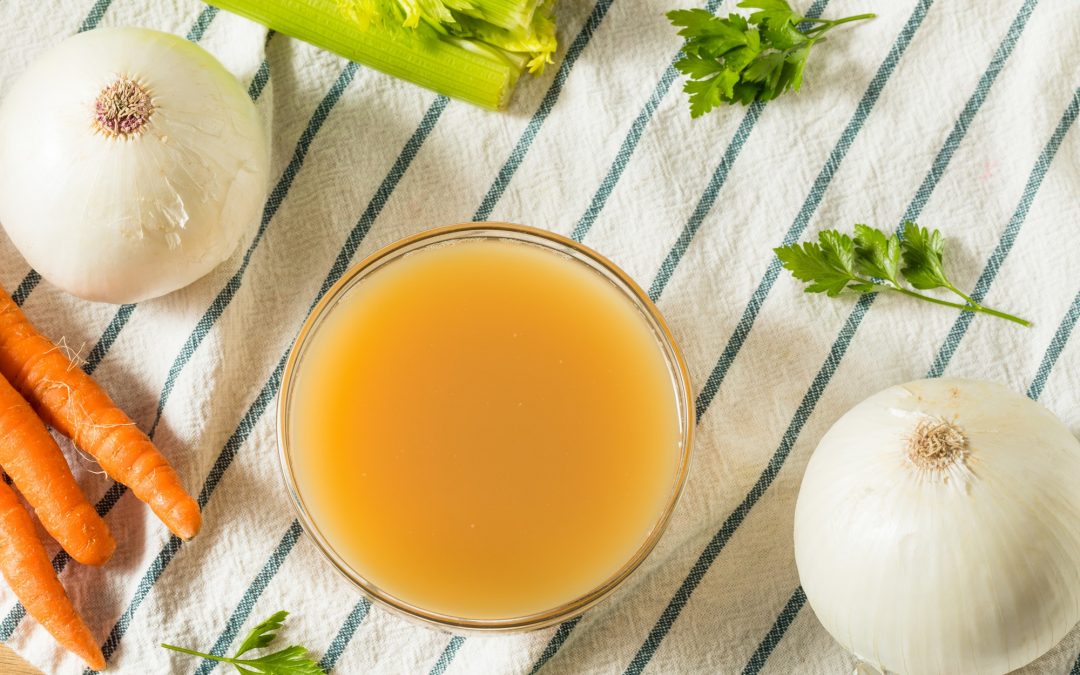
Recent Comments